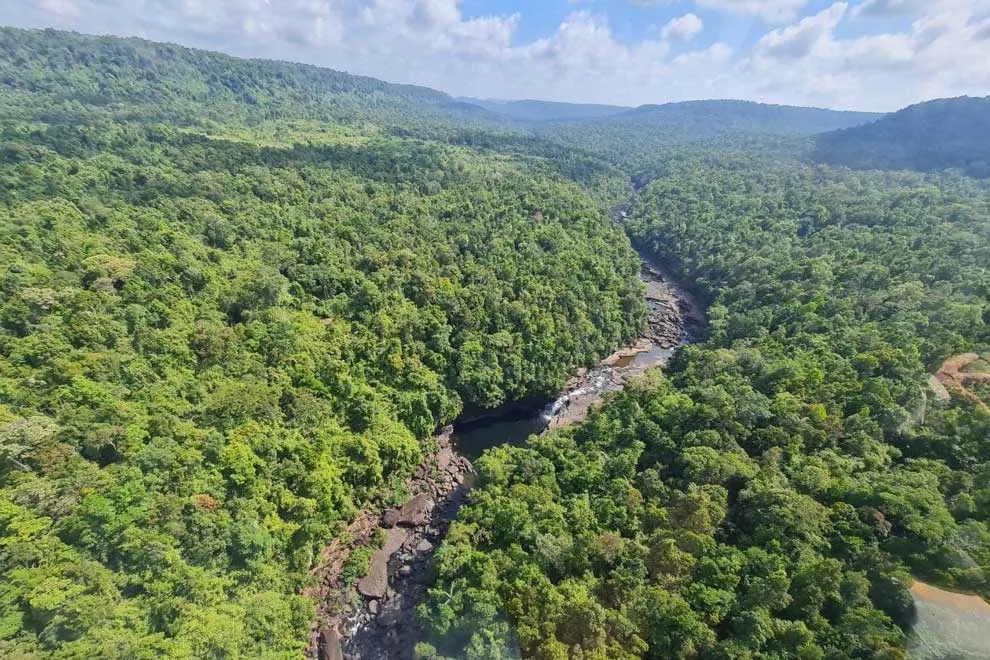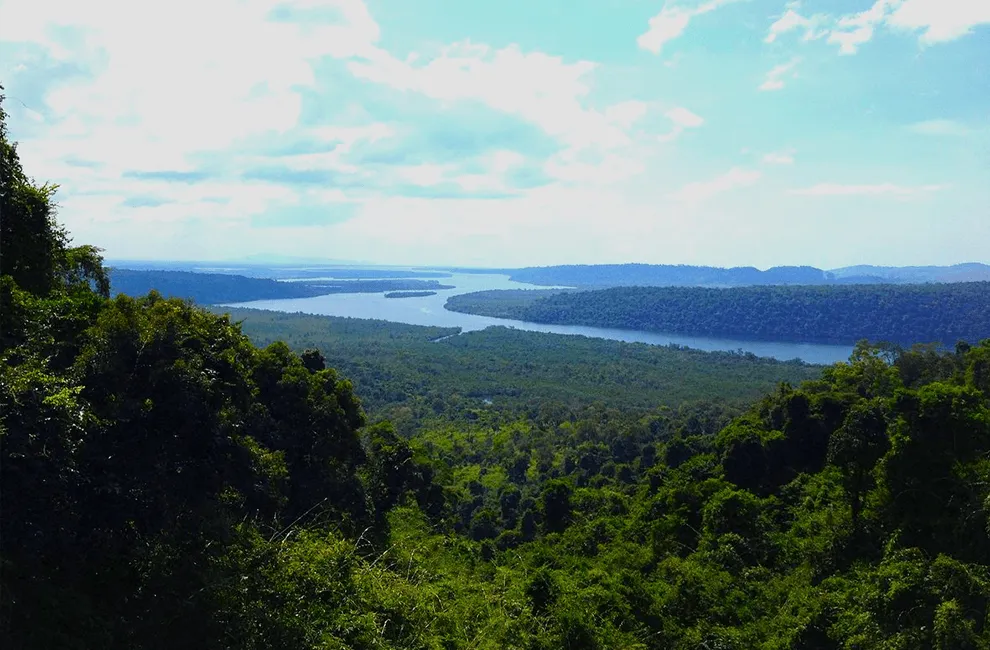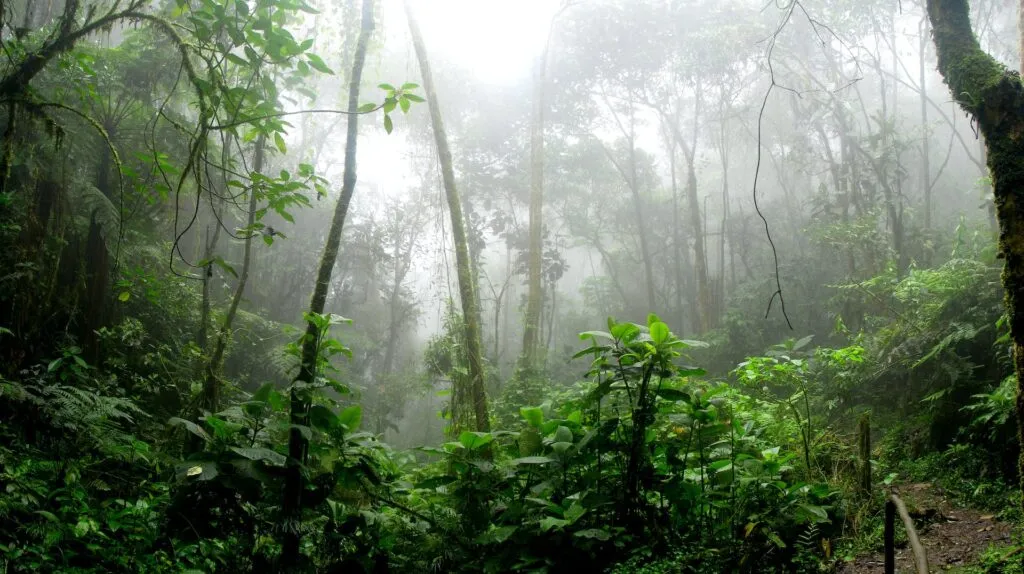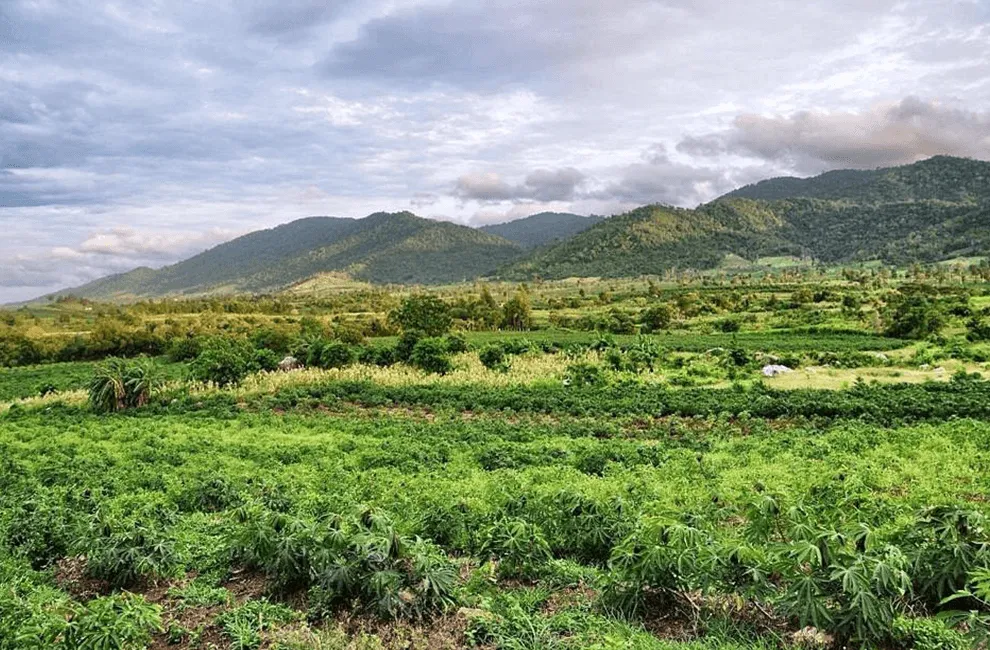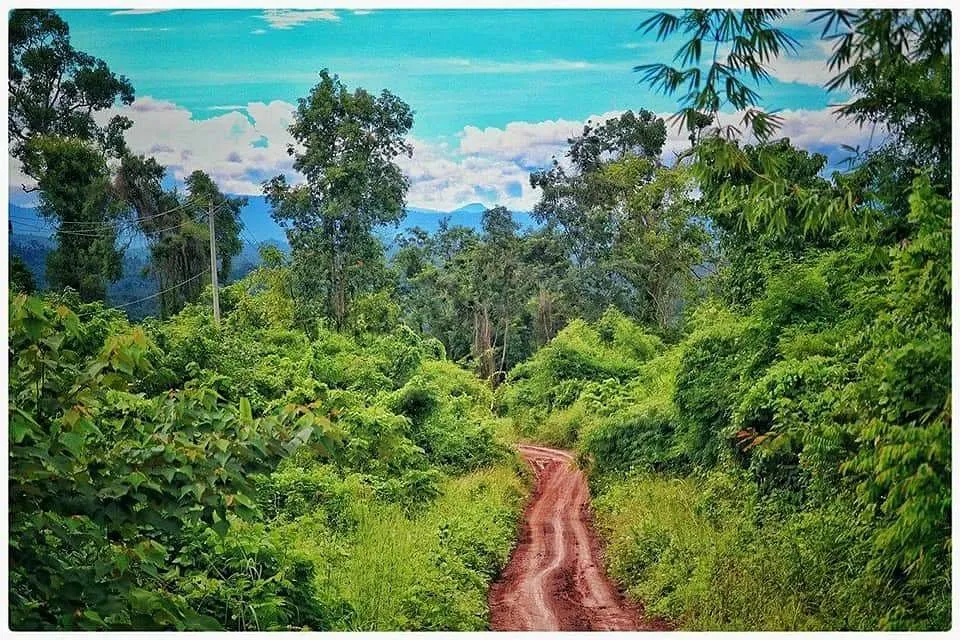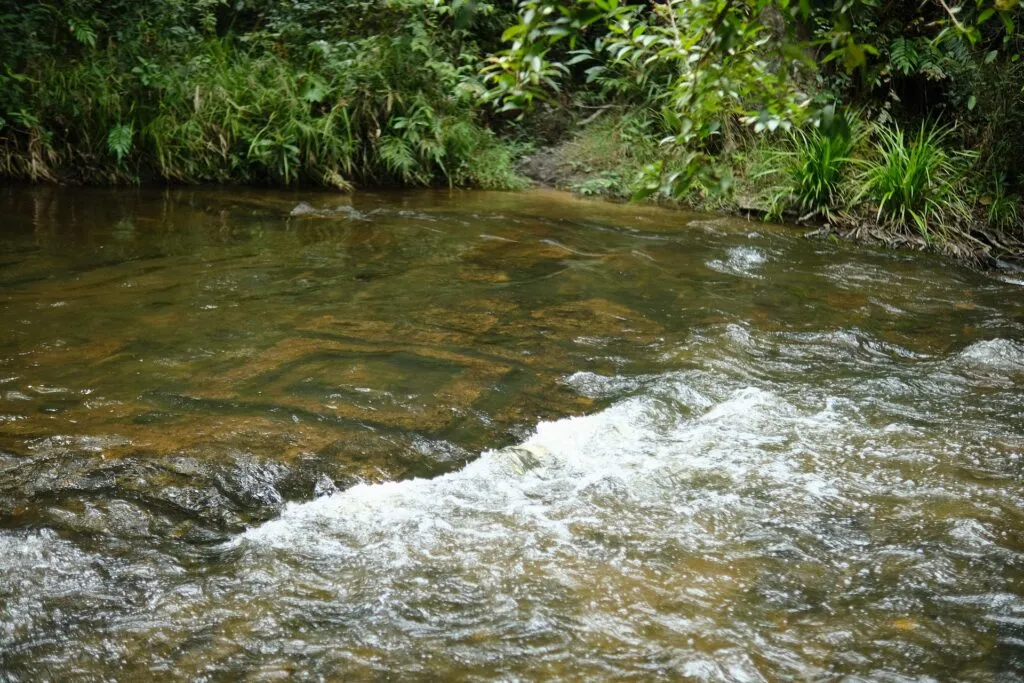Embracing Sustainable Travel in the Cardamom Mountains
Cambodia’s Cardamom Mountains, a vast expanse of lush rainforest, cascading waterfalls, and hidden wildlife, beckon adventurers seeking an authentic and eco-conscious experience. Sustainable travel in this pristine wilderness offers a unique opportunity to connect with nature, support local communities, and minimize your environmental impact.
In this comprehensive guide, we will delve into the world of sustainable travel in the Cardamom Mountains. We’ll explore the principles of responsible tourism, highlight eco-friendly activities and accommodations, and showcase the positive impact travelers can make in this fragile ecosystem.
The Essence of Sustainable Travel in the Cardamom Mountains
Sustainable travel, often referred to as eco-tourism or responsible travel, centers around minimizing the negative impacts of tourism on the environment and local communities, while maximizing the positive benefits. It involves making conscious choices that promote conservation, cultural preservation, and economic empowerment.
In the context of the Cardamom Mountains, sustainable travel entails treading lightly on this delicate ecosystem. In essence, it means respecting the natural environment, supporting local businesses and initiatives, and learning about the rich cultural heritage of the communities residing within the mountains.
Why Choose Sustainable Travel in the Cardamom Mountains?
Opting for sustainable travel in the Cardamom Mountains is not just an ethical choice; it also enriches your travel experience in numerous ways.
- Conservation of Biodiversity: The Cardamom Mountains are a biodiversity hotspot, home to a plethora of rare and endangered species. Therefore, sustainable travel practices help protect these precious ecosystems and the wildlife that inhabits them.
- Empowerment of Local Communities: By choosing locally-owned accommodations, engaging with community-based tourism initiatives, and purchasing local products, you directly contribute to the economic well-being of the communities living in and around the Cardamom Mountains.
- Authentic Cultural Experiences: Furthermore, sustainable travel fosters meaningful interactions with local people, allowing you to gain a deeper understanding of their culture, traditions, and way of life.
- Reduced Environmental Impact: Sustainable travel minimizes your carbon footprint and waste generation, ensuring that the Cardamom Mountains remain pristine for future generations to enjoy.
- Personal Growth and Enrichment: Lastly, sustainable travel encourages reflection, learning, and a greater appreciation for the natural world and its inhabitants. It can be a transformative experience that leaves a lasting positive impact on both you and the destination.
Exploring the Cardamom Mountains: Eco-Friendly Activities
The Cardamom Mountains offer a wealth of eco-friendly activities that allow you to experience its natural beauty and cultural richness while adhering to sustainable practices.
- Trekking and Hiking: Explore the diverse landscapes of the Cardamom Mountains on foot. Numerous trails wind through lush rainforests, past cascading waterfalls, and up to breathtaking viewpoints. Moreover, choose a local guide who is knowledgeable about the environment and can help minimize your impact.
- Wildlife Watching: The Cardamom Mountains harbor a wealth of wildlife, including elephants, gibbons, clouded leopards, and a variety of bird species. Embark on a guided wildlife watching tour to observe these magnificent creatures in their natural habitat. However, remember to maintain a respectful distance and avoid disturbing their natural behaviors.
- Kayaking and River Cruises: Paddle through the calm waters of the Cardamom’s rivers and estuaries, enjoying the serenity and scenic beauty. Choose a responsible tour operator that uses kayaks or boats with minimal environmental impact.
- Community-Based Tourism: Engage with local communities through homestays, cooking classes, traditional crafts workshops, and cultural performances. These experiences offer a unique insight into the local way of life and provide direct economic benefits to the community.
- Birdwatching: The Cardamom Mountains are a haven for bird enthusiasts, with over 450 species recorded. Join a guided birdwatching tour to spot some of these feathered wonders, including the rare Siamese Fireback and the Chestnut-headed Partridge.
- Visiting Wildlife Sanctuaries and Conservation Projects: Support the conservation efforts in the Cardamom Mountains by visiting wildlife sanctuaries and conservation projects. Additionally, learn about the challenges facing endangered species and how you can contribute to their protection.
Choosing Sustainable Accommodations in the Cardamom Mountains
Several eco-lodges and community-based homestays in the Cardamom Mountains prioritize sustainability and offer a comfortable and eco-conscious stay.
- Eco-Lodges: These lodges are designed to blend harmoniously with the natural environment, using sustainable building materials, renewable energy sources, and water conservation practices. They often employ local staff and source food and supplies from nearby communities.
- Community-Based Homestays: Staying with a local family offers a unique cultural immersion and provides direct economic support to the community. These homestays often use traditional building techniques and offer a glimpse into the local way of life.
- Treehouse Accommodations: Some lodges offer unique treehouse accommodations nestled amidst the rainforest canopy. These elevated structures minimize impact on the forest floor and provide a thrilling experience close to nature.
When choosing your accommodation, consider factors such as its environmental practices, community engagement, and commitment to sustainable tourism principles.
Practical Tips for Sustainable Travel in the Cardamom Mountains
Here are some practical tips to ensure your journey to the Cardamom Mountains is as sustainable as possible.
- Pack Light and Smart: Bring only essential items and avoid single-use plastics. Instead, choose reusable water bottles, toiletries, and food containers.
- Respect Local Customs and Traditions: Dress modestly and be mindful of local sensitivities. Also, ask permission before taking photographs of people or sacred sites.
- Support Local Businesses: Purchase souvenirs and handicrafts from local artisans and dine at locally-owned restaurants.
- Minimize Waste: Carry a reusable bag for your belongings and dispose of waste responsibly. Avoid littering and participate in any available recycling programs.
- Conserve Water and Energy: Be mindful of your water and energy consumption. Take shorter showers, turn off lights when leaving your room, and unplug electronic devices when not in use.
- Choose Responsible Tour Operators: Select tour operators that prioritize sustainability, employ local guides, and support community development projects.
- Learn a Few Local Phrases: Making an effort to communicate in the local language shows respect and can enhance your interactions with local people.
- Be a Conscious Traveler: Be mindful of your actions and their impact on the environment and local communities. Leave the Cardamom Mountains as you found them, or even better.
Real-Life Examples of Sustainable Travel in the Cardamom Mountains
Let’s explore a couple of real-life examples to see how sustainable travel is being practiced in the Cardamom Mountains.
- The Chi Phat Community-Based Ecotourism Project: This award-winning project empowers local communities to manage and benefit from tourism in a sustainable way. Visitors can stay in homestays, participate in guided treks and wildlife watching tours, and learn about traditional farming and fishing practices.
- The Wildlife Alliance Cardamom Rainforest Conservation Project: This project works to protect the Cardamom Mountains’ rich biodiversity through anti-poaching patrols, community engagement, and sustainable livelihood initiatives. Visitors can support their efforts by participating in volunteer programs or making donations.
High-Frequency Queries about Sustainable Travel in the Cardamom Mountains
- What is the best time to visit the Cardamom Mountains for sustainable travel? The dry season, from November to April, is generally considered the best time to visit, as trails are more accessible and wildlife sightings are more frequent. However, responsible travel is possible year-round, and the rainy season offers its own unique beauty and experiences.
- How can I ensure my trip to the Cardamom Mountains benefits local communities? Choose community-based homestays, dine at locally-owned restaurants, purchase souvenirs from local artisans, and participate in community-led tours and activities.
- What are some of the challenges facing sustainable tourism in the Cardamom Mountains? Some of the challenges include illegal logging, poaching, and land encroachment. Nevertheless, responsible tourism can help address these issues by providing alternative livelihoods for local communities and raising awareness about the importance of conservation.
Additional Relevant Terms
- Carbon footprint
- Eco-friendly
- Green travel
- Low-impact tourism
- Nature-based tourism
- Responsible wildlife tourism
- Slow travel
- Sustainable development goals
- Voluntourism
Call to Action
Conclusion
In conclusion, sustainable travel in the Cardamom Mountains is a journey of discovery, connection, and preservation. By choosing eco-friendly activities, supporting local communities, and minimizing your environmental impact, you can contribute to the long-term well-being of this precious ecosystem and its inhabitants.


